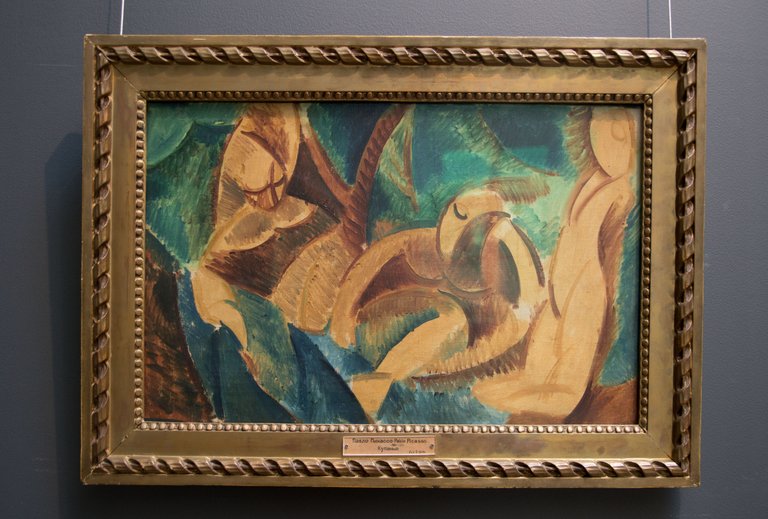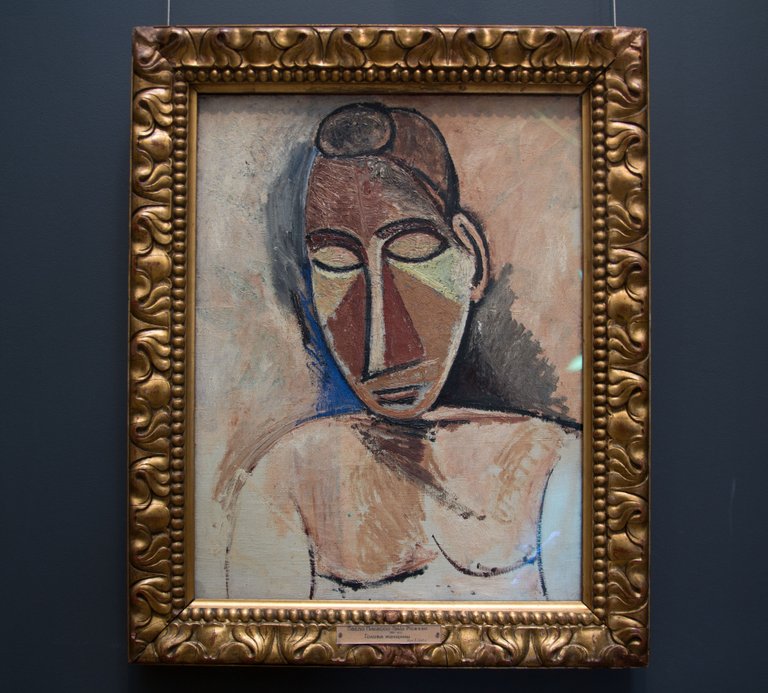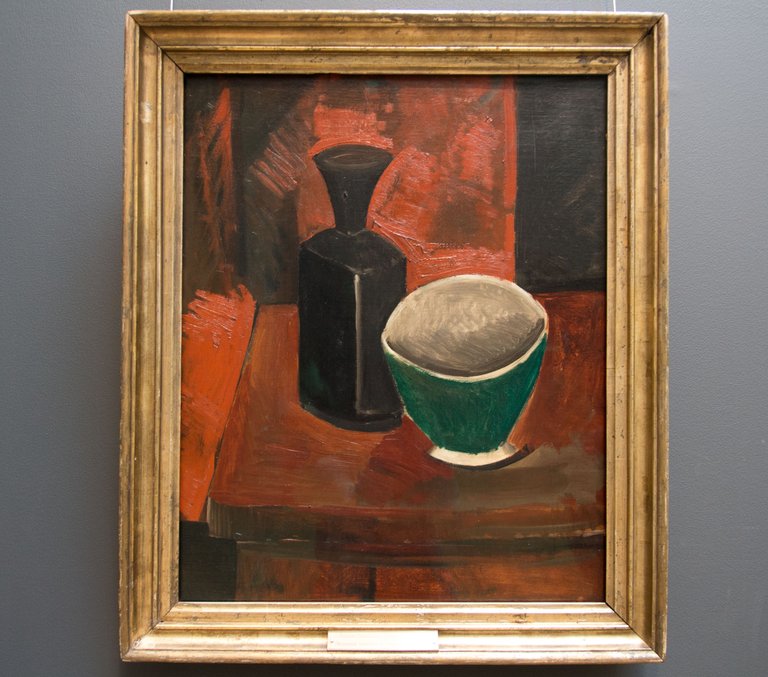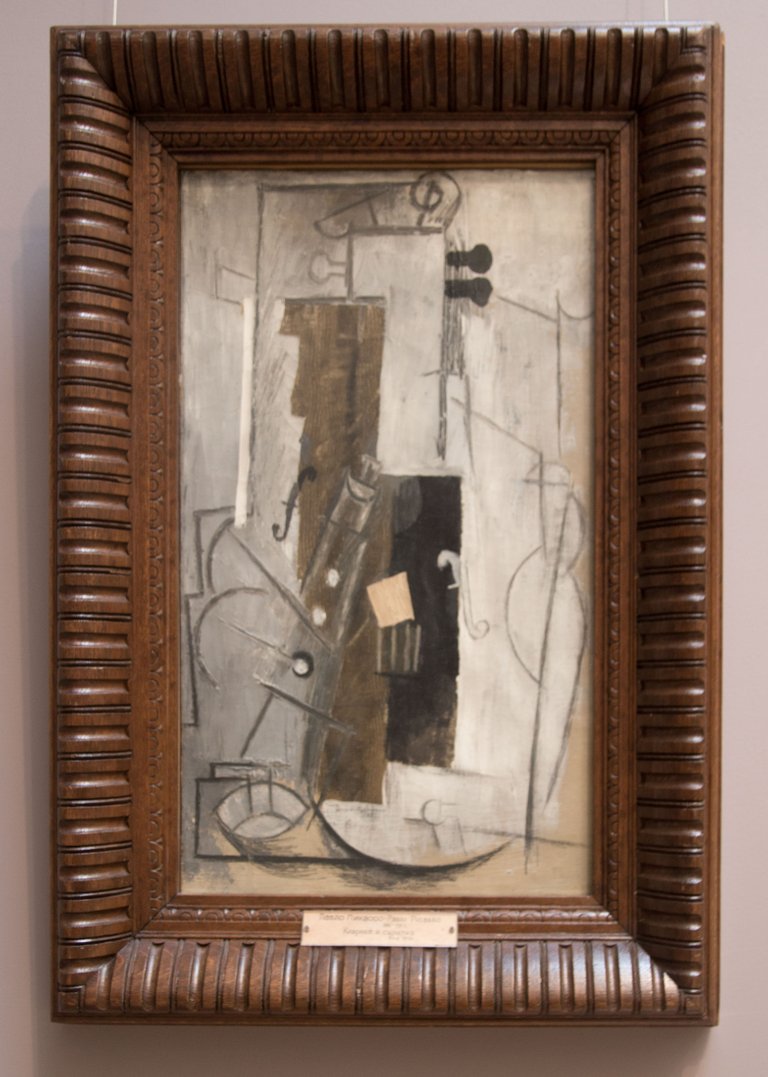
In this publication, I will continue to talk about the French artists of the 20th century.
The first three parts can be found at the link below.
1.https://steemit.com/ntopaz/@kurokikuro/ntopaz--kurokikuro--1100939222--ntopaz-artzone-art-photo-ocd-resteem--2019-05-03-03-09-05--artwork--none
2.https://steemit.com/ntopaz/@kurokikuro/ntopaz--kurokikuro--1100939222--ntopaz-artzone-art-ocd-resteem-photo--2019-05-04-01-41-39--artwork--none
3.https://steemit.com/ntopaz/@kurokikuro/ntopaz--kurokikuro--1100939222--ntopaz-art-artzone-ocd-resteem-photo--2019-05-07-03-04-32--artwork--none
Cubism
Cubism takes its origins in the painting of Cezanne. In a letter to the artist Emile Bernard (circa 1904), Paul Cezanne wrote: “We must return to classicism through nature, in other words, through sensation. In nature, everything is molded on the basis of a ball, a cone and a cylinder. Drawing and color are inseparable, as you write, you draw: the more harmonious the color becomes, the more accurate the drawing becomes. When the color reaches the greatest wealth, the form becomes complete. Contrasts and tone ratios - this is the whole secret of drawing and modeling. ”

Pablo Picasso - Bathing
In terms of painting, cubism made a real revolution, the artists began to ignore the conventions of academic school and realism, freely experimenting with form, color, application and other expressive means. The Cubists demanded to seek out the essence of things - and not slavishly reflect them in the picture, like a mirror; freeing the painting from the burden of vitality, they fought against its illusions.
The main desire in cubism is the decomposition of three-dimensional objects into simple elements, then to re-assemble on canvas in a two-dimensional image.

Pablo Picasso - Head of a Woman
Cubism has three directions.
The first "sezannovsky" formed under the influence of African sculpture and the work of Cezanne. On such canvases powerful volumes are stacked on the canvas, enhanced by color.

Pablo Picasso - Green Bowl and Black Bottle
The second period is called "analytical". The subject of painting is divided into small faces that are clearly separable from each other, the shape of the subject blurs throughout the canvas, and there is practically no color in the picture.

Pablo Picasso - Violin and clarinet
In the third period, which is called as "synthetic" Cubism, the paintings turn into colorful panels. Forms become more decorative, stencils and stickers appear in the picture, forming collages. Also, with the help of geometric forms and their fragments, new objects are constructed, which have a reality by themselves, and are not an image of the visible world.
The most famous Cubists are: Pablo Picasso, Georges Braque, Juan Gris.
With this, I will finish my series of publications on painting. I will continue to study the history of art, and as soon as I gather a sufficient amount of interesting material, I will again begin to share it with you.
Thank you for watching! :3
This post was shared in the Curation Collective Discord community for curators, and upvoted and resteemed by the @c-squared community account after manual review.
@c-squared runs a community witness. Please consider using one of your witness votes on us here
It is a good presentation of Cubism and Picasso's painting:) The next time you post a curation post, upolad it through the CU section, not CR. CR is for orginal artworks:)
well thank you!